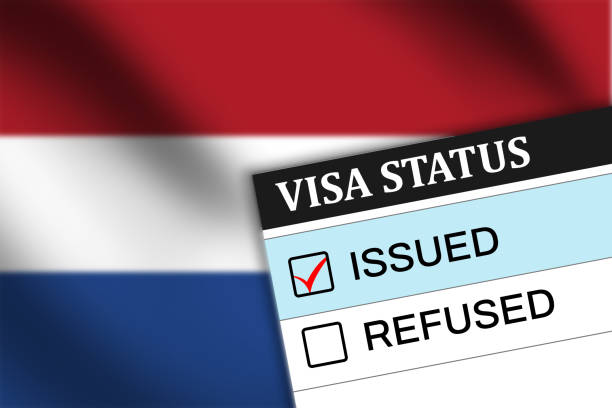Study Abroad
Guide to Professional Development Grants: Complete Guide
Securing a professional development grant can be a transformative step in advancing your career, enhancing your skills, and opening new opportunities. However, navigating the process legally and ethically is crucial to ensure compliance with all requirements and increase your chances of success. This comprehensive guide will walk you through the steps of legally securing a professional development grant, from finding suitable grants to submitting a compelling application.
Understanding Professional Development Grants
Professional development grants are funds provided by various organizations, including government agencies, private foundations, and professional associations, to support the growth and development of individuals in their careers. These grants can cover a range of activities, such as:
- Continuing education and certifications
- Workshops and seminars
- Research projects
- Conferences
- Mentorship programs
Legal Considerations
Before diving into the application process, it’s essential to understand the legal considerations involved in applying for and receiving grants. Here are some key points to keep in mind:
- Eligibility Requirements: Ensure you meet the eligibility criteria specified by the grant provider. This can include qualifications, field of work, geographical location, and more.
- Use of Funds: Be clear about how the funds can be used. Misuse of grant funds can lead to legal consequences and disqualification from future grants.
- Reporting Requirements: Most grants require regular reporting on how the funds are used. Failure to comply with these requirements can result in the need to repay the grant.
- Tax Implications: Understand the tax implications of receiving a grant. In some cases, grant funds may be considered taxable income.
Finding Professional Development Grants
Government Grants
Government grants are a significant source of funding for professional development. These grants are often aimed at workforce development and skill enhancement in critical sectors.
- Grants.gov: This comprehensive database provides information on all available federal grants. Visit Grants.gov
- USA.gov Grants and Loans: Offers information on federal benefits, grants, and loans. Visit USA.gov
Also Read: The Ultimate Guide to Pursuing an Online Master’s Degree
Private Foundation Grants
Private foundations often provide grants to support professional development in specific fields or for specific purposes.
- The Ford Foundation: Focuses on social justice and offers various grants, including those for professional development. Visit The Ford Foundation
- The Gates Foundation: Provides grants for educational advancement and professional development. Visit The Gates Foundation
Professional Associations
Many professional associations offer grants to their members for continuing education and career development.
- American Nurses Association (ANA): Offers grants for nursing education and professional development. Visit ANA
- Project Management Institute (PMI): Provides grants for project management professionals to further their education and training. Visit PMI
University and Educational Institutions
Many universities offer grants and scholarships for professional development, especially for their alumni or current students.
- Harvard University Professional Development Grants: Offers various grants for continuing education. Visit Harvard University
- Stanford University Continuing Studies: Provides financial aid and grants for professional development courses. Visit Stanford University
Steps to Secure a Professional Development Grant
1. Research and Identify Suitable Grants
Start by researching and identifying grants that align with your professional development goals. Use online databases, professional networks, and industry publications to find potential grants. Ensure you meet the eligibility criteria for each grant you consider.
2. Understand the Application Process
Each grant will have its own application process, including specific requirements and deadlines. Thoroughly read the application guidelines to understand what is required. This may include:
- Application forms
- Personal statements or essays
- Letters of recommendation
- Detailed budget proposals
- Proof of eligibility (e.g., certifications, employment verification)
3. Prepare Your Application
Prepare your application carefully and thoroughly. Here are some tips for a successful application:
- Tailor Your Application: Customize your application to highlight how the grant aligns with your professional goals and how it will help you achieve them.
- Provide Detailed Information: Be specific about how you plan to use the funds and the expected outcomes. Include a detailed budget if required.
- Obtain Strong References: Letters of recommendation from respected professionals in your field can strengthen your application. Choose references who can speak to your qualifications and potential.
- Proofread: Ensure your application is free from errors and clearly presents your case.
4. Submit Your Application
Submit your application before the deadline. Ensure you have included all required documents and have followed the submission guidelines precisely. Missing documents or failure to follow instructions can result in disqualification.
5. Follow Up
After submitting your application, follow up with the grant provider to confirm receipt and inquire about the timeline for decisions. This demonstrates your commitment and enthusiasm for the opportunity.
6. Comply with Grant Requirements
If you are awarded the grant, ensure you comply with all requirements, including how the funds are used and reporting obligations. Keep detailed records of your expenditures and progress to provide accurate reports as required by the grant provider.
Useful Resources and Links
- Grants.gov: Comprehensive database of federal grants
- USA.gov Grants and Loans: Information on federal grants and loans
- The Ford Foundation: Private foundation offering various grants
- The Gates Foundation: Grants for educational and professional development
- American Nurses Association (ANA): Grants for nursing education
- Project Management Institute (PMI): Grants for project management professionals
- Harvard University Professional Development Grants: Grants for continuing education
- Stanford University Continuing Studies: Financial aid for professional development courses
Writing a Professional Development Grant
Securing a professional development grant can significantly enhance your career by providing the necessary funding to gain new skills, attend workshops, or pursue further education. However, writing a compelling grant application requires careful planning, a clear understanding of the requirements, and the ability to articulate your goals effectively. This guide will walk you through the process of writing a professional development grant, from initial preparation to submission, and provide valuable links to resources that can assist you along the way.
Understanding the Basics of Professional Development Grants
Before you start writing your grant application, it’s crucial to understand what professional development grants are and what they typically cover. These grants can fund various activities, such as:
- Continuing education courses
- Professional certifications
- Workshops and seminars
- Research projects
- Conferences and networking events
- Mentorship programs
Grants are typically provided by government agencies, private foundations, professional associations, and corporations.
Steps to Writing a Professional Development Grant
1. Identify Relevant Grants
The first step in writing a grant application is identifying the grants that are most relevant to your professional development goals. Here are some resources to help you find suitable grants:
- Grants.gov: Comprehensive database of U.S. federal grants. Visit Grants.gov
- Foundation Directory Online: Database of grants offered by private foundations and public charities. Visit Foundation Directory Online
- Professional Associations: Many professional associations offer grants to their members. For example:
2. Review Grant Guidelines
Each grant will have specific guidelines and requirements. Carefully read these guidelines to ensure you are eligible and understand what is required in the application. Pay attention to:
- Eligibility criteria
- Application deadlines
- Required documents and information
- Evaluation criteria
3. Gather Necessary Information
Before you start writing, gather all the necessary information and documents. This typically includes:
- Personal and contact information
- Professional resume or CV
- Detailed budget for the proposed activities
- Letters of recommendation or references
- Proof of eligibility (e.g., certifications, employment verification)
4. Write a Compelling Proposal
Your grant proposal should be clear, concise, and compelling. Here are the main components to include:
a. Executive Summary
The executive summary is a brief overview of your proposal. It should summarize the key points and make a strong case for why you deserve the grant.
Example: “I am applying for the [Grant Name] to support my participation in the [Course/Workshop/Conference Name]. This opportunity will allow me to enhance my skills in [Specific Area], which is essential for my role as [Your Position] at [Your Organization]. The knowledge and skills gained from this experience will enable me to contribute more effectively to [Specific Goals].”
b. Statement of Need
Explain why you need the grant and how it will benefit your professional development. Be specific about the challenges you face and how the grant will help you overcome them.
Example: “As a mid-career professional in [Industry/Field], I have identified a critical need to advance my skills in [Specific Area]. However, the cost of attending [Course/Workshop/Conference Name] is beyond my current financial capabilities. This grant will provide the necessary funds to support my continued education and professional growth.”
c. Goals and Objectives
Clearly outline the goals and objectives of your professional development plan. What do you hope to achieve by receiving this grant?
Example: “My primary goal is to gain advanced knowledge and skills in [Specific Area]. Specifically, I aim to:
- Complete the [Certification/Training Program] by [Date].
- Apply the new skills to improve [Specific Process/Project] at my organization.
- Share the acquired knowledge with my colleagues through [Workshops/Presentations].”
d. Methods and Activities
Describe the specific activities you will undertake with the grant funds. Provide a detailed plan and timeline.
Example: “Upon receiving the grant, I will:
- Enroll in the [Course/Workshop/Conference Name] scheduled for [Dates].
- Attend all sessions and complete the required assignments by [Completion Date].
- Implement the new skills and techniques in my current projects starting [Date].”
e. Budget
Provide a detailed budget that outlines how the grant funds will be used. Include tuition fees, travel expenses, materials, and any other relevant costs.
Example: “The total budget for my professional development plan is $5,000, which includes:
- Tuition Fees: $3,000
- Travel Expenses: $1,200
- Accommodation: $500
- Materials and Supplies: $300″
f. Evaluation and Reporting
Explain how you will evaluate the success of your professional development activities and how you will report the outcomes to the grant provider.
Example: “I will measure the success of my professional development activities by:
- Completing the [Course/Workshop/Conference Name] with a satisfactory grade.
- Applying the new skills in [Specific Projects/Tasks] and tracking improvements.
- Submitting a detailed report to the grant provider by [Reporting Deadline], including an overview of the activities completed and the outcomes achieved.”
Also Read: Best Universities for Computer Science: A Comprehensive Guide
5. Obtain Strong References
Letters of recommendation can significantly strengthen your grant application. Choose references who can speak to your qualifications, professional achievements, and potential for growth. Provide your references with sufficient information about the grant and your professional development goals to help them write a compelling letter.
6. Proofread and Edit
Ensure your application is free from errors and clearly presents your case. Proofread your proposal multiple times and consider having a colleague review it for clarity and coherence.
7. Submit Your Application
Follow the submission guidelines provided by the grant provider. Ensure you have included all required documents and have adhered to the formatting and submission instructions. Submit your application before the deadline.
8. Follow Up
After submitting your application, follow up with the grant provider to confirm receipt and inquire about the timeline for decisions. This demonstrates your commitment and professionalism.











Pingback: Guide to Cloud Computing Courses – DsibileHub
Pingback: European University Scholarships – DsibileHub